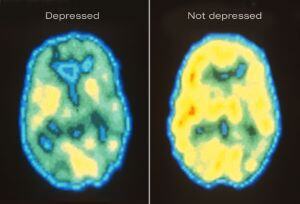A Smart TMS Patient Experience: Week 1
October 16, 2019 - Smart TMS

The Experience Of A Smart TMS Patient
As with every treatment, the experience of each of our patients differs from person to person. Many patients have no side effects, others take paracetamol to combat the headache they get following treatment. Some patients feel able to have three sessions in a day, whereas others prefer to stick to one. At Smart TMS, we aim to individualise each and every treatment programme to the patient.
According to our most recent internal audit, 75% of patients treated for depression see significant improvements in their symptoms. In addition, 60% of our patients who come to us with depression, leave our care in remission. Sassy Wyatt was one such patient who was no longer clinically depressed at the end of her course of treatment.
Who is Sassy Wyatt?
Sassy is a disability and lifestyle blogger, journalist, influencer and patient of Smart TMS. She lives in London with her fiance, Grant, and her faithful guide dog Ida and she uses her blog to raise awareness of disabilities, both physical and mental.
Sassy tells us her story in the first of the series of videos she produced three months post-Smart TMS.
What causes depression?
Honestly? No one knows for sure. According to the NHS;
“People often talk about a “downward spiral” of events that leads to depression. For example, if your relationship with your partner breaks down, you’re likely to feel low, you may stop seeing friends and family and you may start drinking more. All of this can make you feel worse and trigger depression.”
Any difficult, upsetting or stressful life event can impact your mood and ultimately cause depression. In Sassy’s case, her depression starting was linked to her beginning to lose her sight in her teens. Scans and research have also proven that in cases of depression, the connections between these cells may be fewer in the prefrontal cortex.

How does TMS help depression?
Transcranial Magnetic Stimulation (or TMS for short) works by causing neuroplasticity. This is defined as the brain’s ability to build and repair connections between the nerve cells. TMS works by restoring these connections to ensure your brain can work as it should, without depressive symptoms.
Find out more
If you’d like to listen to more of Sassy’s story, we have documented her experience. Our team of patient advisors speak to patients with a range of mental health conditions, from depression to OCD, to addiction, on a daily basis. Please don’t hesitate to contact the team to learn more about how TMS could help you.
Contact us
(UK)
Tel: 0345 222 5678
Email: info@smarttms.co.uk
(IE)
Tel: (01) 254 2514
Email: info@smarttms.ie










